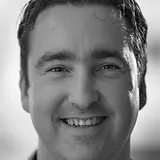I am a nuclear medicine specialist and always trying to implement innovative diagnostic and therapeutic methods in imaging. My main research interests involve infectious and inflammatory diseases, tumor-immunology, and development of new-targeted diagnostic tools for PET imaging. The latter focus is carried out in close collaboration with our radiochemists.
Within the lymphoma research Groningen team we have a close collaboration with the department of hematology. The research is focused on finding new methods for diagnosis and therapy evaluation in several types of lymphomas. We have a special interest in post-transplant lymphatic disorders (PTLD). Furthermore, we are developing and evaluating several fields of radionuclide therapy, so called theranostics.
A high prevalence of Cutibacterium acnes infections in scoliosis revision surgery, a diagnostic and therapeutic dilemma
Published in: Spine deformity
Purpose To investigate if serum inflammatory markers or nuclear imaging can accurately diagnose a chronic spinal instrumentation infection (SII) prior to surgery. Methods All patients who underwent revision of spinal instrumentation after a scoliosis correction between 2017 and 2019, were retrospectively evaluated. The diagnostic accuracy of serum C-reactive protein (CRP) and Erythrocyte Sedimentation Rate (ESR), F-18-fluorodeoxyglucose positron emission tomography combined with computed tomography (FDG-PET/CT) and Technetium-99m-methylene diphosphonate (99mTc-MDP) 3-phase bone scintigraphy (TPBS) to diagnose infection were studied. Patients with an acute infection or inadequate culture sampling were excluded....
Imaging of Invasive Fungal Infections: The Role of PET/CT
Published in: Seminars in Nuclear Medicine
Over the last decades, the population at risk for invasive fungal disease (IFD) has increased because of medical therapy advances and diseases compromising patients’ immune systems. The high morbidity and mortality associated with invasive fungal disease in the immunocompromised present the challenge of early diagnosis of the IFD and the need to closely monitor the infection during treatment. The definitive diagnosis of invasive fungal disease based on culture or histopathological methods often has reduced diagnostic accuracy in the immunocompromised and may be very invasive. Less invasive and indirect...
Molecular Imaging of Fever of Unknown Origin: An Update
Published in: Seminars in Nuclear Medicine
18F-FDG PET/CT, 67Ga-citrate and white blood cell (WBC) scintigraphy are molecular imaging techniques currently used in the diagnostic workup of fever of unknown origin. However, it is unknown which technique fits which patient group best. A systematic literature search has been performed for original articles regarding the use of molecular imaging in fever of unknown origin. A total of 820 eligible studies were screened of which 63 articles evaluating 5094 patients met the inclusion criteria. 18F-FDG PET/CT provided good diagnostic accuracy (with a weighted mean sensitivity, specificity, positive...
Technical and clinical applications of long-axial-field-of-view/Total Body PET-CT
Perspectives on joint EANM/SNMMI/ANZSNM practice guidelines/procedure standards for [18F]FDG PET/CT imaging during immunomodulatory treatments in patients with solid tumors
Published in: Cancer imaging
Response assessment in the context of immunomodulatory treatments represents a major challenge for the medical imaging community and requires a multidisciplinary approach with involvement of oncologists, radiologists, and nuclear medicine specialists. There is evolving evidence that [18F]FDG PET/CT is a useful diagnostic modality for this purpose. The clinical indications for, and the principal aspects of its standardization in this context have been detailed in the recently published “Joint EANM/SNMMI/ANZSNM practice guidelines/procedure standards on recommended use of [18F]FDG PET/CT imaging during immunomodulatory treatments in patients with solid tumors version...
E. Lopci, N. Aide, A. Dimitrakopoulou-Strauss, L. Dercle, A. Iravani, R. D. Seban, C. Sachpekidis, O. Humbert, O. Gheysens,
A. W.J.M. Glaudemans, W. A. Weber, A. D. Van den Abbeele, R. L. Wahl, A. M. Scott, N. Pandit-Taskar, R. J. Hicks

